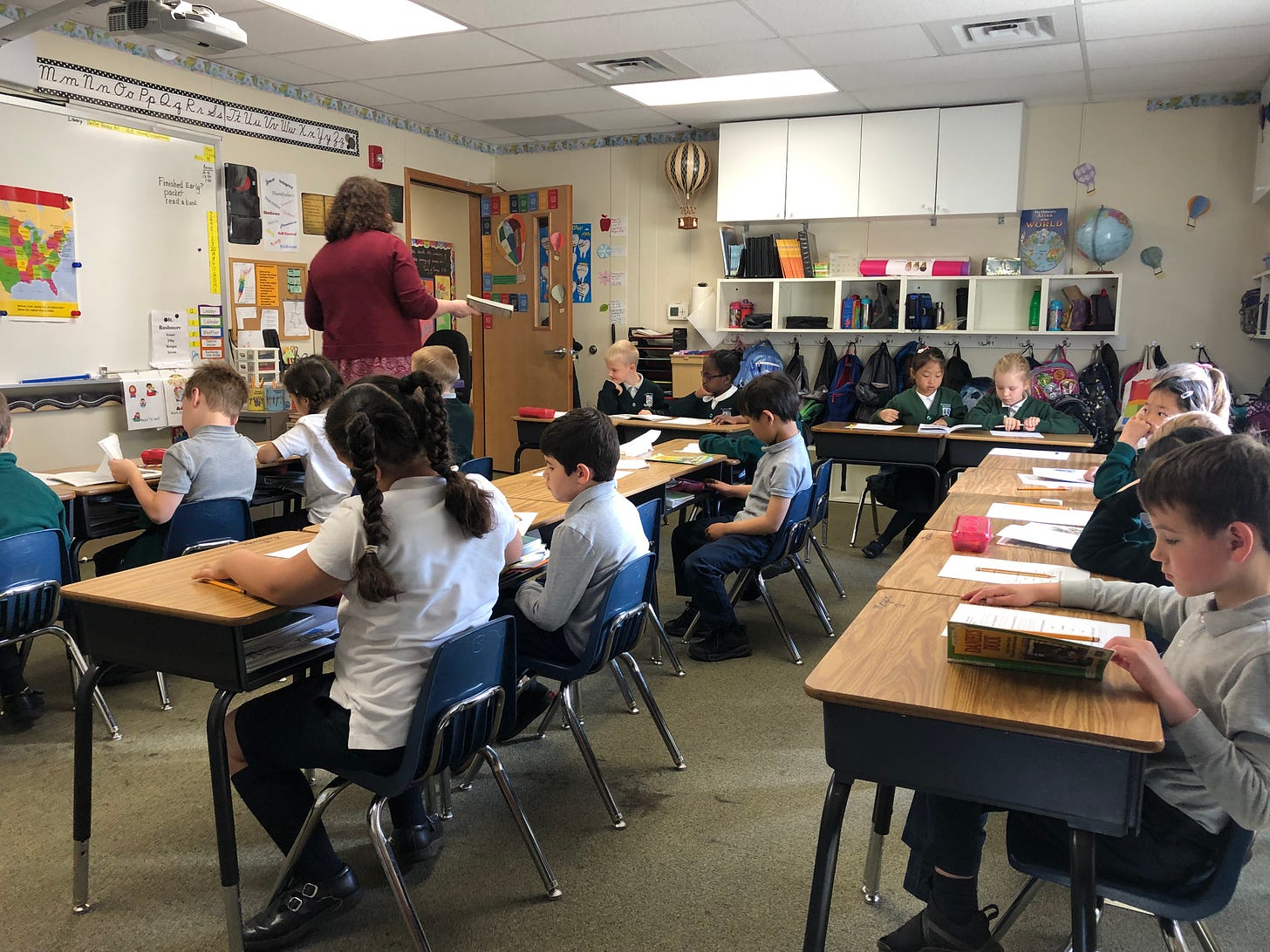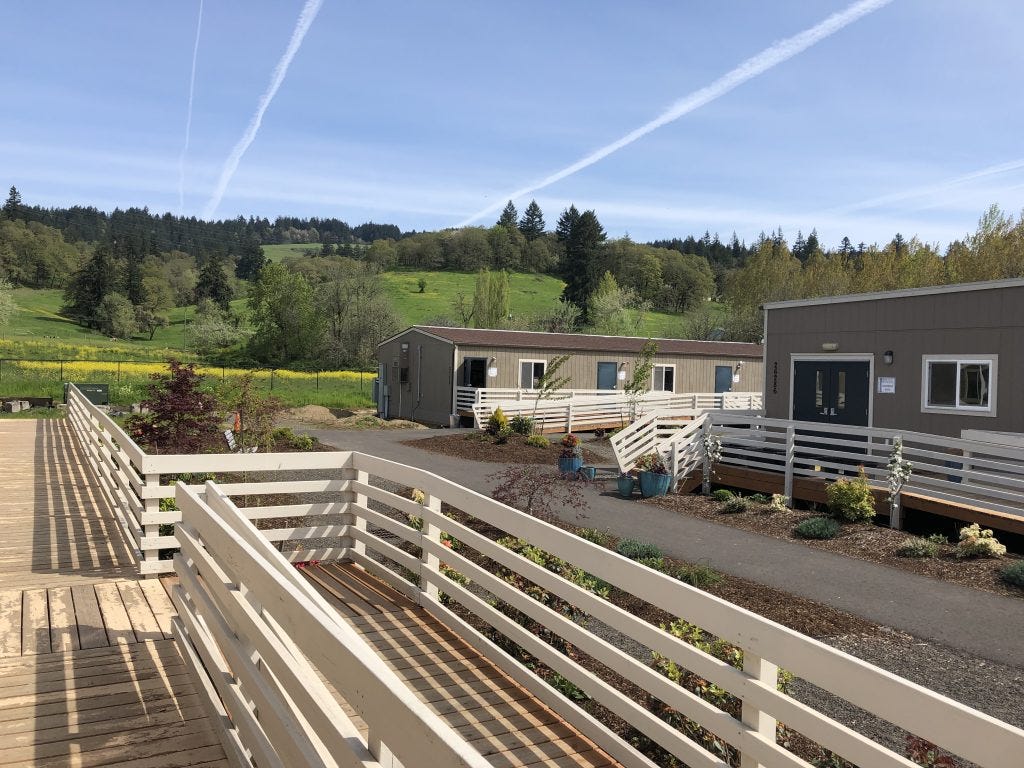Classical Christian Education Alive & Well
A Summary of My Recent Travels to Portland CC Schools
As headmaster of a school accredited by the Association of Classical and Christian Schools, I serve once a year on an ACCS accrediting team that visits one of a number of schools seeking ACCS accreditation or accreditation renewal.
The process involves an extensive evaluation of a school's self-study, two full days of onsite observation, meetings with the school's board, administrative leadership, and individual faculty and students, and then culminates in the writing of a report that commends, recommends, or points out discrepancies between the school's performance and the rigorous ACCS standards.
Petra went through this renewal process in 2017 and will do so again in 2021 for our third five-year renewal. While it's a tremendous amount of work for a school and takes almost a year to complete before the on-site visit, it's a very helpful process that yields much fruit, not only from the preparation of the school's self-study, but also (and especially) in the interaction with members of the visiting accrediting team, each of whom is a headmaster, principal, or administrative leader at another ACCS school.
This year, my assembled team was asked to visit St. Stephens Academy, a K-12 school on two campuses in Beaverton, OR. After the intensive work of the two-and-a-half day visit, the team and I also visited two other schools (Veritas Classical Christian School and Cedar Tree Classical Christian School) in the area, as well as George Fox University, a Christian liberal arts university twenty miles outside of Portland.
Upon returning from the trip, I'll say this: classical Christian education is alive and well. I could comment on dozens of aspects of why I'm encouraged with the state of the classical Christian movement, but let me narrow it down to three: people, place, and pedagogy.
People
Like any institution, a school is not a living entity itself, but a collection of committed people who make it up and give it life. One would have to look far and wide to find a group of people more dedicated to an increasingly counter-cultural movement than those involved with classical Christian education, but I found a number of such folks in the Portland area:
the 11th grader who recognizes the devotion of her parents in sending her as the third of ten (ten!) children in her family to attend the school
the grandmother who volunteers at the school four hours a day - everyday - despite the fact that her grandchildren no longer attend
the retiring 70-year-old elementary principal whose passion for the school fuels her 60-hour work weeks
the uber-successful business executive whose love for the school manifests itself in tears when answering the question, "Why are you involved?"
These examples are just from St. Stephens; I met plenty of others at the other schools, including teachers and administration members with their own stories of sacrifice in doing what they do in the name of classical Christian education. Like our faculty at Petra, these caring, educated, hard-working staff don't make a lot of money to fully compensate them for their efforts, but that doesn't stop them from giving their best.
Place
St. Stephens meets in two different church buildings 20 minutes apart as they look for land to build and re-locate to one place their growing school; Veritas and Cedar Tree each are on their own campuses, but both meet in a configuration of portable modulars while they raise funds to build central spaces that will meet their need for all-school assemblies and community meetings.
However, the mentality of each of these schools is hardly one of "making due"; rather, they make the most of their places, filling and using every square foot of space as needed in order to carry out their mission. Students and staff rotate classrooms, books line permanent and makeshift shelves, athletic facilities are rented and scheduled, and student drop-off and pick-up would be more of a challenge than it is if it weren't for the patience of parents. In the midst of it all (whether in the outside landscaping or the bulletin boards on the walls), there is an effort made at excellence and beauty.
Pedagogy
"Pedagogy" - a fancy word for "method or practice of teaching" - counts for much in educational circles, but no more so than in classical Christian schools. One of my favorite "pedagogical" moments of my trip was Cedar Tree's morning matins, held outside - rain or shine - at the beginning of each day. As school leaders are currently raising funds to build an enclosed building large enough to hold their school and begin the day, the entire K-12 student body and staff line the sidewalks around their "quad" to read Scripture, pray, and sing, a portion of which I happened to catch in the video below:
It was gratifying to see familiar practices like matins and prayer, memory and recitation, discussion and debate, thesis preparation and presentation (just to name a few) in these schools so different from (and yet so similar to) Petra. To see students, teachers, parents, and board members in Oregon committed to so many of the same goals and objectives that we are here in Montana was a welcome encouragement I wanted to bring back to share with our folks for our remaining five weeks of school.
We are not alone in our efforts to train our students in truth, goodness, and beauty! As we head into the month of May and run across the finish line of the 2018-19 school year, may we consider these schools' examples even as we remind ourselves of our own mission at Petra Academy:






